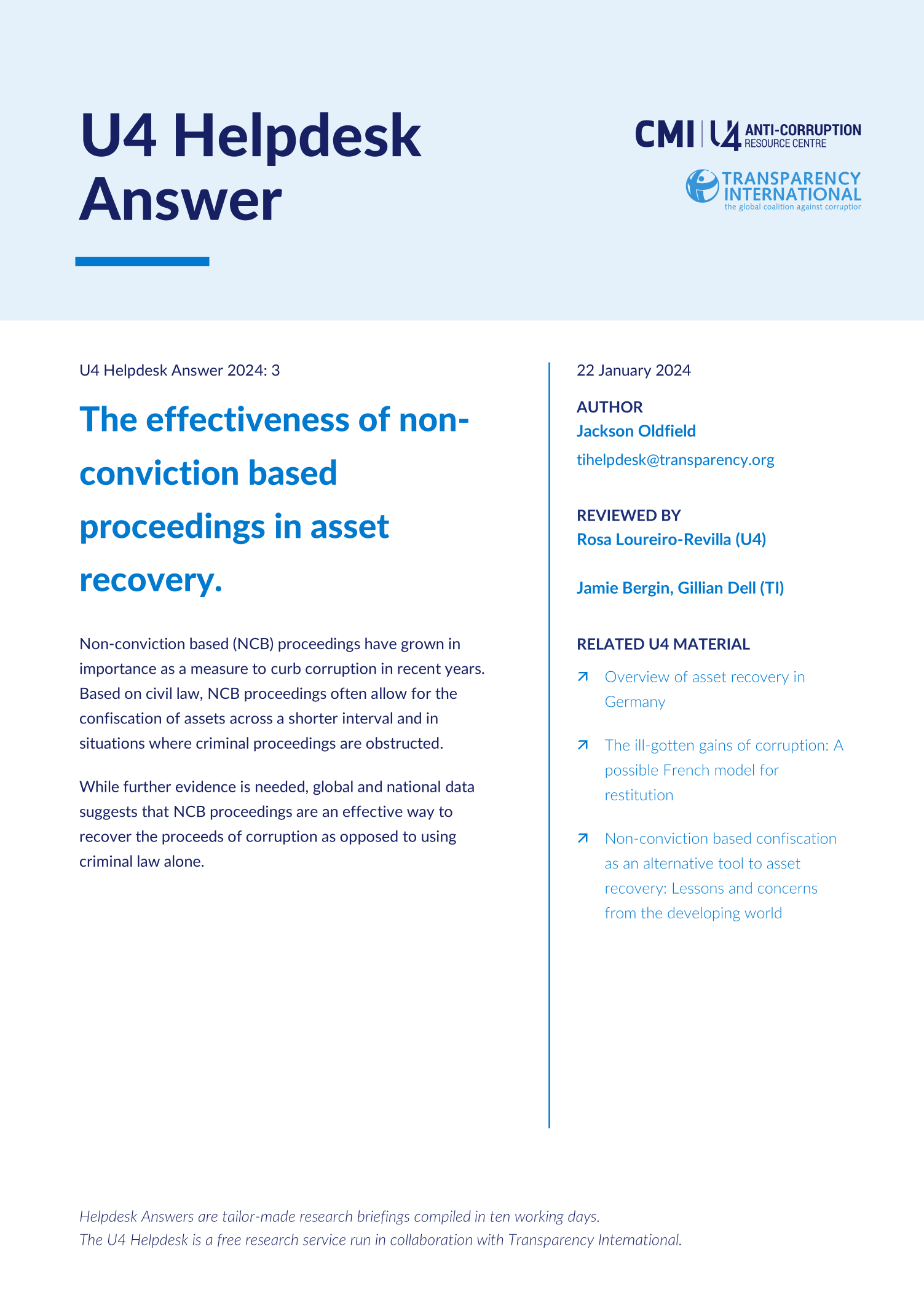Main points
- Non-conviction based (NCB) proceedings are perceived by practitioners as a useful complement to criminal law approaches to corruption, particularly in situations where criminal law cannot adequately respond.
- NCB proceedings should not be seen as separate to criminal proceedings but as a part of a joined-up approach.
- Available data further suggests that NCB proceedings tend to recover proportionally more assets than criminal proceedings and lead to a higher proportion of frozen assets being ultimately confiscated.
- Additional data sources and more granularity in that data would help to gain a deeper understanding of the success levels of NCB proceedings.


